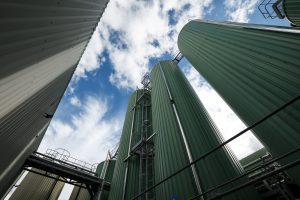Sustainability and consumer decision making

Sustainability is at the heart of everything we do at Meadow and our drive towards a greener future is mirrored in consumers’ attitudes, particularly when it comes to the products they buy.
Compared to a decade ago, consumers are now more likely to choose products that are environmentally friendly, ethically produced and socially responsible, and they are willing to pay a premium for products that meet these criteria.
In our latest blog, we explore the impact that sustainability has on consumer decision making and look at the ways in which Meadow helps the world’s best brands to become more sustainable.
SUSTAINABILITY IN THE FOOD INDUSTRY
As one of the world’s most resource-intensive industries, the food industry has a significant impact on the environment, with production a major contributor to greenhouse gas emissions and deforestation.
In order to mitigate its environmental impact, there’s been a growing trend towards sustainable practices in the food industry with greater emphasis placed on food waste reduction and the sourcing of local ingredients.
Meanwhile, consumers, particularly Gen Z, are also demanding more sustainable food options, such as plant-based and vegetarian products, and are increasingly interested in the environmental and social impact of the foods they eat.
According to the World Economic Forum, at least 65% of consumers want to make the right choices to live a healthier and more sustainable life. This is illustrated by the fact that every generation is now more willing to spend more on sustainable products.
In order to address this, food companies and retailers are taking steps to improve their sustainability practices, from sourcing ingredients more responsibly to reducing their carbon footprint.
Brands are also doing more to signpost the nutritional benefits of their products, as well as introducing eco-labelling to ensure consumers can access information on how sustainable the product is.
How is the dairy industry reducing its environmental impact?
In recent years the dairy sector has taken steps towards minimising its environmental impact and particularly here in the UK, it has become a far more sustainable practice.
This has come both in response to the climate crisis and consumer demand for more sustainable products.
Ultimately, consumers are looking for dairy products that are produced in a way that minimises environmental impact and supports animal welfare. This includes looking for products from companies that use sustainable agricultural practices, reduce greenhouse gas emissions and cut down on waste.
This has seen dairy companies introduce techniques such as reducing greenhouse gas emissions by improving cow feed efficiency and capturing methane from manure.
Water pollution prevention measures such as reducing nutrient runoff from farms have also now become commonplace within the industry.
Meanwhile, thanks to new initiatives to boost animal welfare, the health and wellbeing of cows has improved dramatically over the last 25 years, with issues such as lameness significantly reduced.
How Meadow supports the best brands with its sustainability expertise
Meadow is leading the industry on sustainability and that’s why the world’s favourite brands trust us to help deliver on their environmental ambitions and drive us towards a greener future.
How are we doing this?
Here at Meadow, we’ve set ourselves ambitious targets and a outlined a clear roadmap for achieving our sustainability goals.
By 2030, our aim is to be net zero across all operational sites and to be fully net zero by 2050. We’re also targeting a further 10% reduction in carbon emissions per litre in just two years’ time.
To achieve this, we’ve partnered with energy experts and created carbon reduction plans for our sites giving a clear direction on achieving our target.
On farms we’ve recently launched our farmer engagement program, which allows us to share best practises and the latest initiatives with our producers, giving them further opportunities to reduce their footprints in the most efficient way currently available.
All of this means that we can supply our customers with ingredients, whether dairy or plant-based, that have been manufactured responsibly.
From Unilever to Premier Foods, we also offer all our customers tailored sustainability reports, which allow them to provide consumers with transparency when it comes to product sustainability.
Sustainability plays a significant part in informing consumers’ decisions about which products to pick up and it will only grow in importance as a purchasing criterion.
Meadow: The sustainable essential ingredient in a greener future
Meadow’s sustainable ingredients help to ensure that our customers can commit to operating in an environmentally responsible way so that they can meet demand and stay at the forefront of the market.
By doing the right thing together with our customers, we can all benefit from reduced CO2 emissions and consumers can enjoy products that have been produced in a sustainable way. This helps us drive towards a greener future.
If you’d like to discover more about Meadow, and sample our ingredients, you can do so by contacting our customer service team. Or keep up to date on the latest industry and company news on our Twitter and LinkedIn.
